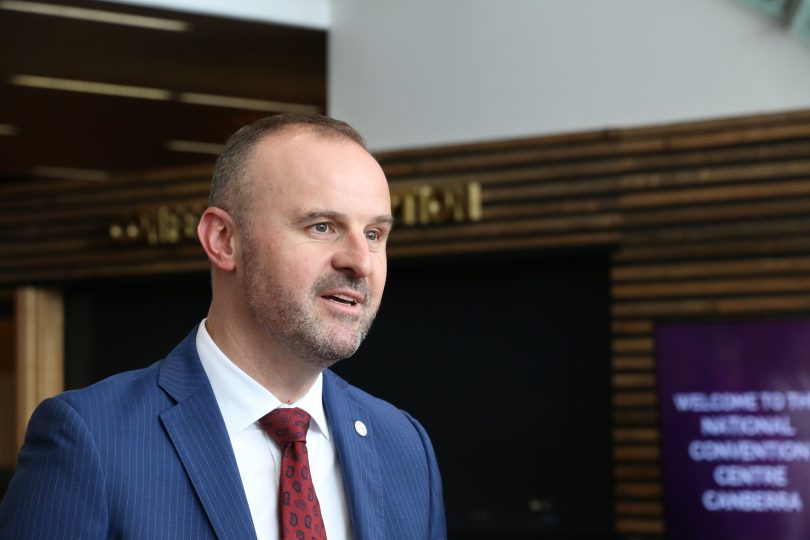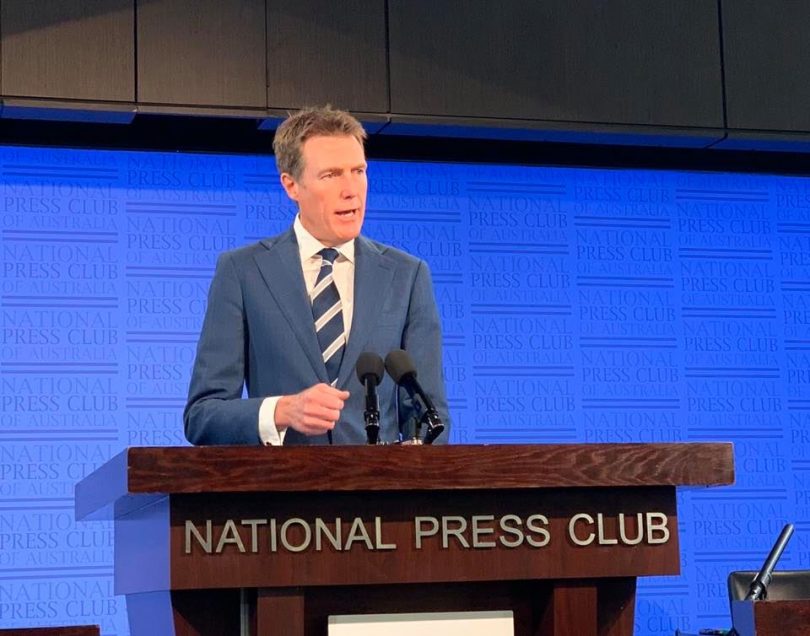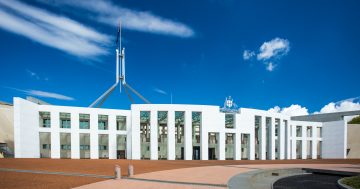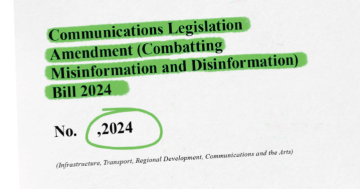
Chief Minister Andrew Barr provided a scathing submission to the Federal Government about its proposed religious freedom laws. Photo: Dominic Giannini.
The Federal Government’s religious freedom bill has been labelled as unnecessary and morally repugnant by ACT Chief Minister Andrew Barr, who said the bill would privilege one set of human rights over another.
In a submission on behalf of the ACT Government, Mr Barr was scathing of the proposed laws, calling the bill friendless and a targeted attack on non-religious people.
“I cannot really explain what the problem is that this legislation is trying to solve,” Mr Barr told Region Media.
“This has to be among the most friendless legislation that has ever been proposed by an Australian government. Those whom it purports to support are not supportive of it, by and large, and those whose rights and protections it would strip away are implacably opposed.
“We want to maintain the situation where people are free from religion in their lives and it does not require intervention from the Federal Government to protect religious freedom.
“This is a clumsy, unnecessary dimension that goes well beyond protecting religious freedom and goes into the arena of providing religious privilege and persecuting those who are not religious and that is very dangerous territory.”
Mr Barr says religious protections are already in place.
“That protection is already enshrined both in the Constitution and through state and territory discrimination acts,” he said.
The submission from the ACT Government focused heavily on the repercussions for the education and health sector, claiming that the bill “appears to allow schools to discriminate on the grounds of religion after a student is enrolled”, which Mr Barr called abhorrent.
“An organisation who is in receipt of public funding and has admitted a student should not be expelling that student. There is no demand from any school in the ACT to be kicking out any gay kids so, again, why is this legislation necessary?” Mr Barr said.
“It would be entrenching religious persecution of people who were accepted into an educational institution; so in this instance, it would be entrenching religious persecution of children.
“It is morally objectionable on those grounds alone, let alone the awful precedence it sets for Australian society. It is just morally repugnant.”
A second draft of the proposed laws was released on 10 December 2019, with 11 changes being made.
The Federal Government first floated the policy as a caveat to appease religious institutions and right-wing MPs during the same-sex marriage plebiscite in 2017. An inquiry into religious freedoms, which was headed by Philip Ruddock, was announced in November that year.
The proposed bill would make it unlawful to discriminate against a person on the basis of their religion and creates a new office of the Freedom of Religion Commissioner in the Australian Human Rights Commission.
The ACT submission objects to the proposed anti-discrimination laws, raising concerns about public healthcare providers privileging one group of people over another, stating that the new legislation could “risk creating a new legal basis for health practitioners to conscientiously object to providing reproductive health services, including abortion”.
“What we want to ensure is that any non-government, religious-based health service provider that is provided public funds to provide health services does so for the entire community, with no discrimination on the basis of a patient’s attribute,” Mr Barr said.

Attorney-General Christian Porter speaking at the National Press Club in November 2019. Photo: National Press Club.
Federal Attorney-General Christian Porter rejected this assertion.
“The bill makes very clear that, while religious hospitals and aged care facilities can maintain a faith-based ethos amongst their staff, they cannot turn away patients or deliver services differently based on religion,” he said in a statement to the ABC.
Mr Barr reiterated that the legislation was moot as there was no problem with religious freedom in Australia. When questioned about the validity of proactive legislation, or clarifying potential problems before they arise, Mr Barr rejected the assertion.
“Well no, because what they are proposing are not protections it is persecution, so the logical position starts from a flawed basis,” he told Region Media.
“What is proposed here is religious preference, not religious freedom. In the simplest possible terms, religious freedom is the right to practise your religion, it is not the right to impose your religion on others and so that is the fundamental philosophical issue.”
He was similarly skeptical if a new bill were to exclude organisations that receive public funding, a common criticism of the bill where organisations that receive taxpayer funds are allowed to conscientiously object to providing certain services.
“[An exemption for public funds] would address many of the concerns in that it would almost entirely limit the right of exclusion within religious organisations to matters that are private in nature, but that is not obviously the key intent of the legislation,” he said.
“The key intent of the legislation is to elevate religious privilege ahead of other rights, including the right to be free from discrimination.
“Freedom from religion is just as important as freedom of religion.”
















